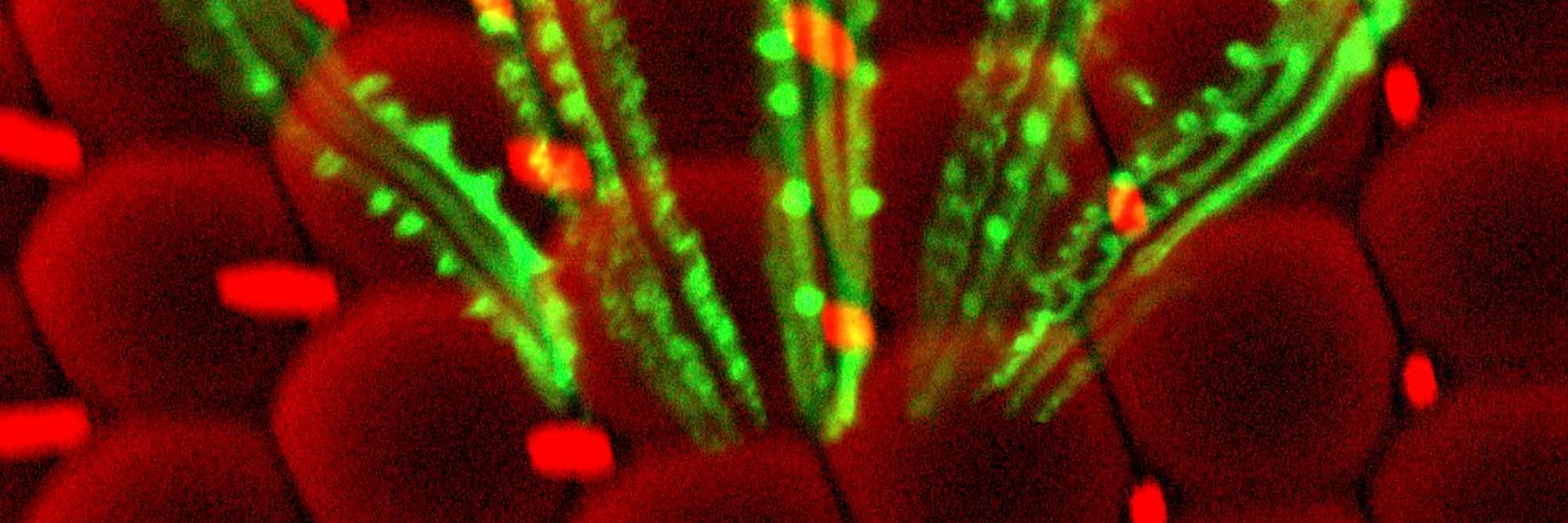Cell biology faculty members in MCDB investigate the structure and function of cells and how cellular activity couples external/internal signals to various physiological and pathological events. Current research topics include microtubule dynamics, membrane trafficking, protein/lipid glycosylation, cell adhesion/migration, cell polarity, cell signaling, fertilization, cell differentiation, tumorigenesis/cancer metastasis, programmed cell death, mRNA translocation/local protein synthesis, organelle biogenesis, and pathogen-host interaction. Investigators employ a wide variety of model systems ranging from unicellular eukaryotes and cultured cells, to flies, worms, plants, and animals, bringing together a myriad of scientific approaches including molecular biology, biochemistry, genetics, physiology, microscopy, computer modeling, bioinformatics, and nanotechnology. These combined areas of expertise create a stimulating and rich integrative research environment. Moreover, active collaborations among different research groups generate a more extensive and synergistic output.
